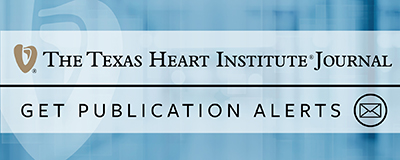Banning the Handshake from Healthcare Settings Is Not the Solution to Poor Hand Hygiene
In the early to mid-1800s, puerperal fever was rampant in maternity wards throughout Europe. From his on-the-spot observations, Ignaz Philipp Semmelweis (1818–1865) concluded that students who had performed autopsies on victims of the disease were carrying the infection to healthy mothers in the obstetrical unit. He believed that washing one's hands before examining women in labor could save lives. Although history would prove him right, obstetricians and midwives of that era vehemently rejected his doctrine of cleanliness. He was unable to cope with the strain of such vitriolic controversy, and his brooding brought on insanity. Shortly after he entered an asylum, a wound on his right hand led to his death from the very disease that he had struggled so hard to prevent—streptococcal blood poisoning.1
Lessons Learned
Thanks to Semmelweis, we have learned a lot about the importance of good hand hygiene. We know, for example, that contaminated hands can transmit pathogens that are capable of causing respiratory, urinary, enteric, cutaneous, and surgical-site infections.2–4 We know, too, that plain soap and running water—when used for at least 10 to 15 seconds—will remove most transiently acquired organisms.3,5,6 Hand-washing, therefore, plays a major role in preventing and controlling contagion.3,7–11
The Problem Continues
Despite well-designed and continually updated regimens for proper hand hygiene, healthcare workers in general, and physicians in particular, fail to comply with hand-washing policies more than half of the time.3,10–17 To this day, a handshake between the patient and physician (and between healthcare workers themselves) can do more than convey warmth, welcome, and professionalism.18 It can also transmit some of today's particularly troublesome pathogens: Clostridium difficile, methicillin-resistant Staphylococcus aureus, vancomycin-resistant enterococci, and Escherichia coli.
A Radical Proposal
In reaction to these persistently poor compliance rates, some investigators have recently proposed a radical solution: banning the handshake from the healthcare setting.18–21 Proponents of the ban believe that using alternatives to the handshake would substantially reduce the spread of infection and improve the safety of patients and healthcare workers. The leading alternative is the “fist bump.”18,20,21 Bacteriologic studies show that fist-bumping is much cleaner than handshaking or giving “high fives.”18,20,21 Other well-established secular or religious alternatives from around the world include waving, bowing, smiling, looking eye-to-eye at your patient, placing your right palm over your heart, putting your hands (palms together) against your face or chest and tilting your head forward, and touching your patient's shoulder.18,19
Supporters of the ban acknowledge its radical nature. Although they understand the difficulty in persuading patients and members of the healthcare team that handshaking is no longer worthwhile, they argue that the ban has promise, is safe and affordable, and deserves further evaluation.
I respectfully disagree.
Objections to Consider
First of all, if we ban the handshake, we might as well ban the physical examination. Both practices can spread germs. Second, the handshake is a sine qua non of our social culture; banning it conveys the impression that patients and those caring for them are harmful to one another. Third, almost 80% of patients want their physicians to shake their hands during the greeting.22 Banning the handshake would deprive them of their wish. Fourth, I see the ban as a cop-out, a move that misses the point. The problem isn't the handshake: it's the hand-shaker. All the physician has to do is make sure that his or her hands are clean before making contact with a patient. Banning the handshake skirts the issue by exonerating the neglectful hand-shaker. It might also cause Semmelweis to turn over in his grave.
Final Thoughts
No other gesture or greeting can duplicate the benefits of a firm handshake. The handshake has long been, and still is, an invaluable bonding tool.
I now wash my hands of this matter.
Contributor Notes
Dr. Fred is an Associate Editor of the Texas Heart Institute Journal.
